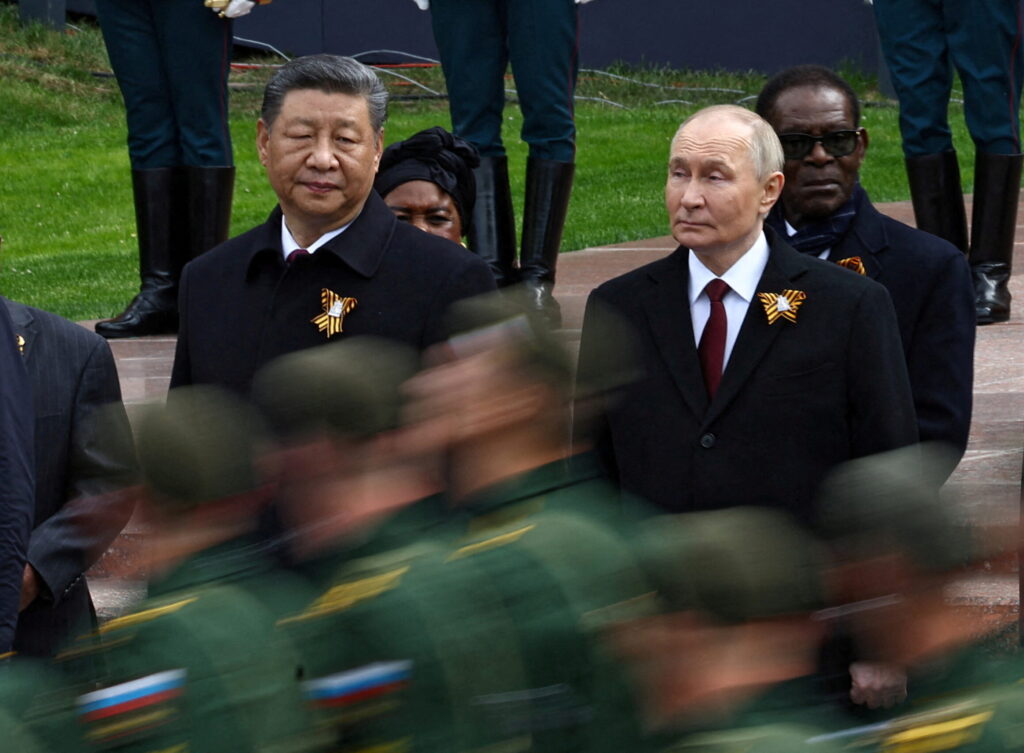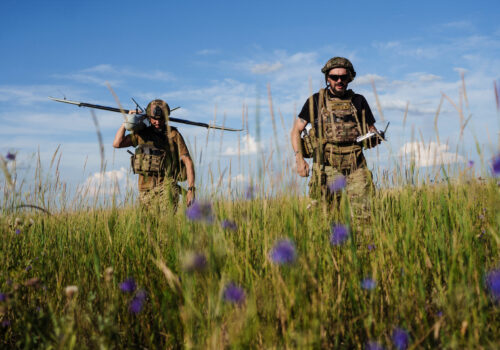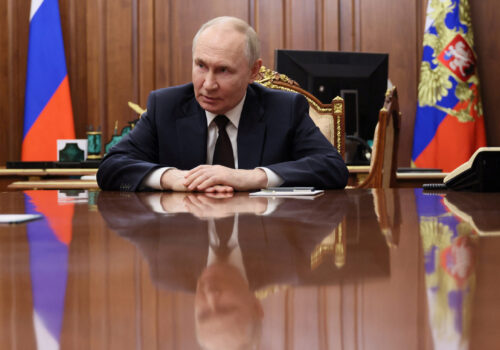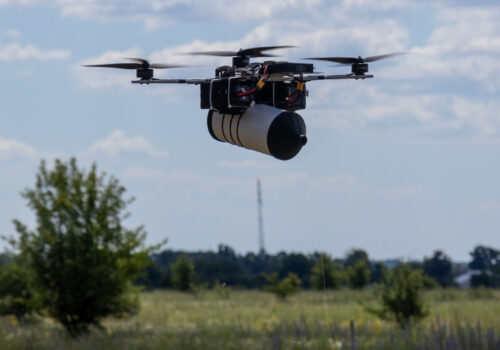US Ambassador to NATO Matthew Whitaker has attacked China for supporting Russia’s invasion of Ukraine and has accused Beijing of waging a “proxy war” to distract the West. “China thinks they’re fighting a proxy war through Russia,” the diplomat told Fox Business on July 22. “They want to keep the US and our allies occupied with this war, so that we cannot focus on our other strategic challenges.”
Ambassador Whitaker’s comments came amid growing international scrutiny of China’s role in the Russian invasion of Ukraine. In recent months, Ukrainian President Volodymyr Zelenskyy has accused China of directly providing Russia with weapons. Beijing has denied the claims. More recently, Reuters has reported that Chinese-made engines are being covertly shipped via front companies to a state-owned drone manufacturer in Russia and labelled as “industrial refrigeration units” to avoid detection.
Stay updated
As the world watches the Russian invasion of Ukraine unfold, UkraineAlert delivers the best Atlantic Council expert insight and analysis on Ukraine twice a week directly to your inbox.
Recent reports of growing Chinese support for the Russian war effort are fuelling renewed speculation over what Beijing is hoping to achieve in Ukraine. While Chinese officials reject accusations that their country is arming Russia as “groundless” and insist that their focus remains on promoting peace talks, comments attributed to Chinese Foreign Minister Wang Yi in early July offer a window into Beijing’s priorities. According to EU officials, China’s top diplomat told his European counterpart, Kaja Kallas, that Beijing is not willing to accept a Russian defeat in Ukraine as this could allow the United States to turn its full attention to China.
Wang Yi’s widely reported statement certainly fits with Beijing’s official stance toward the Russian invasion of Ukraine. Although China claims to want peace, it has consistently demonstrated its diplomatic and economic support for Moscow amid deepening ties with the Kremlin. On the eve of the invasion, China and Russia declared a “no limits” partnership. China’s President Xi Jinping has since met with his Russian counterpart on multiple occasions to reaffirm this partnership. Chinese officials have also frequently echoed Russian justifications for the invasion.
Economic ties between the two countries have strengthened significantly since 2022 amid a rupture in Russian business links with the West. Bilateral trade has soared to record highs, with China serving as a key alternative destination for Russian energy exports while also allegedly proving instrumental in helping Moscow bypass Western sanctions. According to a May 2025 report by the German Foreign Ministry, China is believed to be responsible for around 80 percent of Russian sanctions avoidance.
This growing partnership makes perfect sense. China and Russia share a clear geopolitical alignment in opposition to the current US-led world order, with both Xi and Putin openly speaking about the need for a new multipolar era in international relations. Russia also appears to have had considerable success in convincing China that the invasion of Ukraine is a key step toward achieving this goal. Likewise, Beijing has good reason to fear a Russian defeat in Ukraine, which would significantly strengthen the West while freeing up the United States to turn its attention to Asia.
Eurasia Center events

It is clear that China is now Russia’s most important international partner, but there are some indications of distrust between the two authoritarian allies. Many in Moscow are wary of Russia’s growing dependence on Beijing amid suspicions regarding China’s long-term ambitions toward their country. According to a New York Times report published in June 2025, some elements within Russia’s extensive intelligence community openly refer to the Chinese as “the enemy” and believe efforts are already underway to lay the groundwork for future claims to Russian territory.
In China, meanwhile, there is likely to be a degree of uneasiness about the rapidly deepening military cooperation between Russia and North Korea. Since 2022, Pyongyang has emerged as a key supplier of artillery shells, ballistic missiles, and other munitions to the Russian army. More recently, North Korea has begun providing thousands of combat troops for Russia’s war against Ukraine, along with large numbers of workers for military-related construction and factory roles.
Growing cooperation between Moscow and Pyongyang could undermine Beijing’s position by diluting China’s ability to influence the Kremlin. At the same time, the large amounts of money and increased access to advanced Russian military technologies that North Korea is receiving in return for its support could also transform the delicate geopolitical balance in East Asia.
There is little reason to doubt recent EU claims that China is committed to preventing a Russian defeat in Ukraine. However, the much-hyped partnership between Moscow and Beijing may be more marriage of convenience than ideological alliance. Both sides share a common interest in weakening the West, but they might not be as trusting of each other as their public statements would suggest.
Some in Russia are now openly alarmed by their country’s growing reliance on China and have little faith in Beijing’s good intentions. China almost certainly does not want Russia to lose the war in Ukraine, but Beijing is unlikely to welcome the idea of an historic Russian victory that would strengthen Moscow and weaken the current dominant Chinese position during future negotiations with the Kremlin. Instead, China’s preference may be for the indefinite continuation of a war that increases its leverage over Russia while keeping the West fully occupied and unable to turn its attention to Asia.
Mykola Bielieskov is a research fellow at the National Institute for Strategic Studies and a senior analyst at Ukrainian NGO “Come Back Alive.” The views expressed in this article are the author’s personal position and do not reflect the opinions or views of NISS or Come Back Alive.
Further reading
The views expressed in UkraineAlert are solely those of the authors and do not necessarily reflect the views of the Atlantic Council, its staff, or its supporters.

The Eurasia Center’s mission is to enhance transatlantic cooperation in promoting stability, democratic values, and prosperity in Eurasia, from Eastern Europe and Turkey in the West to the Caucasus, Russia, and Central Asia in the East.
Follow us on social media
and support our work
Image: Russian President Vladimir Putin and Chinese President Xi Jinping watch Russian service members marching past during a flower-laying ceremony at the Tomb of the Unknown Soldier on Victory Day, marking the 80th anniversary of the victory over Nazi Germany in World War Two, in central Moscow, Russia. May 9, 2025. (REUTERS/Evgenia Novozhenina)




